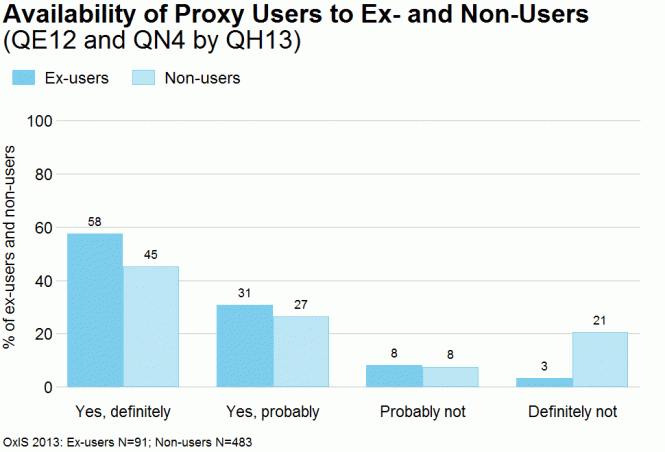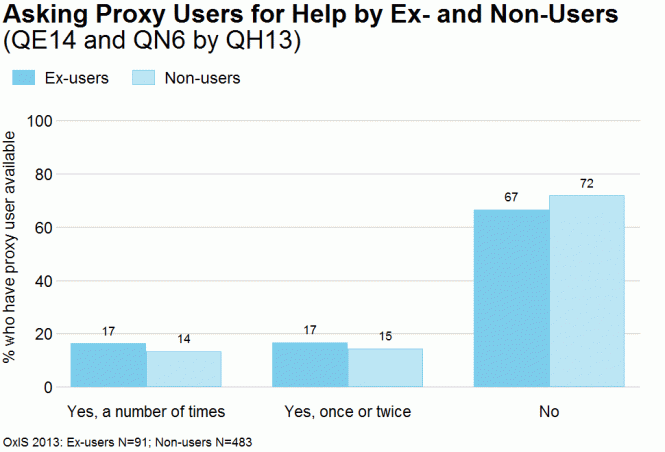3 Sep 2013
Almost 90% of ex-users and almost 70% of non-users said they have a link to the Internet if they need it, but their access is indirect via another, proxy user. Proxy access may not be quick access or high quality access—depending on someone else means going online at their convenience—but it can make the Internet accessible to many who would otherwise be offline completely.
These issues are important as the UK government embarks on tests of a “digital by default” strategy. Given the value of personal assistance, one critical problem in addressing the digital divide remains focused on helping more isolated non-users who could not otherwise find a proxy user, or get the help they require to move into the online world.

Almost 90% of ex-users and 72% of non-users have access to the Internet via proxies.
Although a vast majority of ex- and non-users claim to have proxy access to the Internet, in 2013 only about a third of them reported actually having asked proxy users for help in the past year. This suggests that proxy users could play an important role in bringing the Internet experience to non-users by offering their help explicitly.

Only about one-third of non-users or ex-users asked a proxy for assistance.